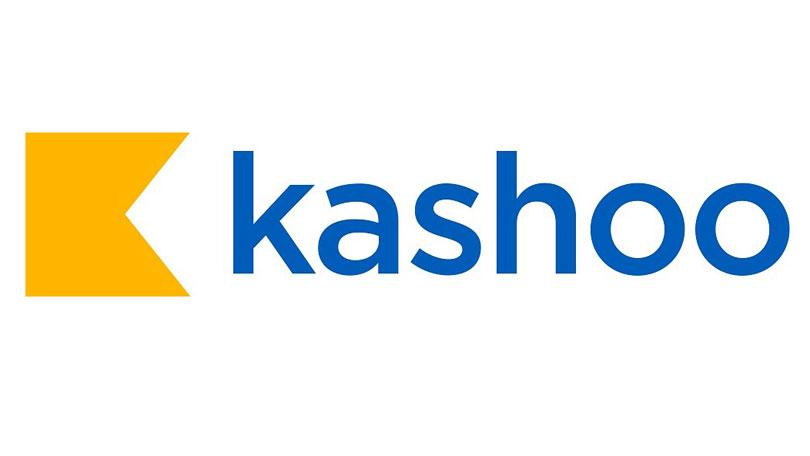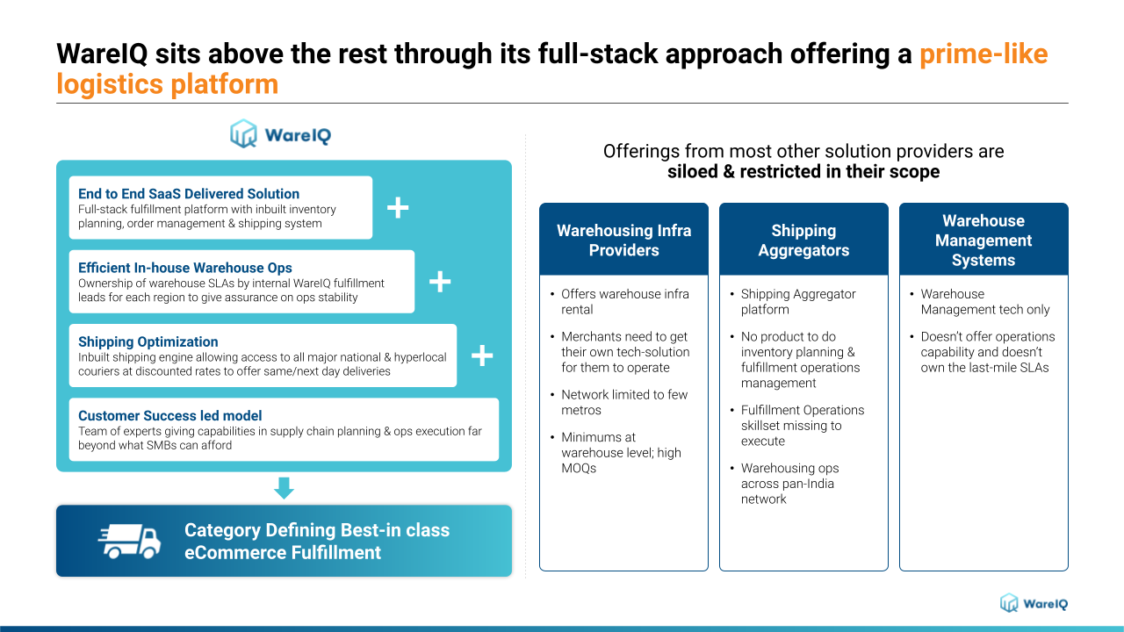The Ultimate Guide to eCommerce Accounting Software and 10 Best Accounting Softwares for eCommerce Companies in 2024

You are able to keep track of all your transactions with eCommerce accounting software, which can also produce financial reports. You may already understand how crucial this is to any company, but eCommerce brings some unique accounting difficulties. Depending on your internet business, you might need to keep track of a large number of online transactions. This could easily become overwhelming if you were using a paper bookkeeping system and trying to handle everything yourself. By integrating with your seller platform and automatically uploading transaction data into its system, eCommerce accounting software reduces this administrative burden.
These imports can speed up bookkeeping while lowering the possibility of data input errors during the transmission of your data. In the odd event that you are subject to a government audit, that accurate data is useful. Opting for the best accounting software for eCommerce operations is crucial for your business if you want to save endless hours of data entry and be ready for tax season.
What is eCommerce accounting software?
Software for accounting in eCommerce is different from standard accounting software. It includes everything connected to online stores and e-commerce so that your firm is properly taxed. It is advisable to select accounting software that offers features advantageous to e-commerce enterprises while making this decision.
WareIQ, an eCommerce fulfillment company, empowers online brands with a superior-tech platform to compete with Amazon like service levels by bringing their average delivery timelines from 5-10 days to 1-2 days.
Methods to Lower Your Audit Risk
By selecting the appropriate eCommerce accounting software, owners of eCommerce businesses can overcome a number of problems. It all boils down to comparing essential characteristics when choosing the best solution. You may be astonished to learn that some basic capabilities might not be included, even if you would believe that every eCommerce accounting software includes all you need. The key characteristics are as follows:
Platform Integrations
Your eCommerce platform, such as Squarespace, Shopify, BigCommerce, and WooCommerce, should be simple to link with your eCommerce accounting software. It should also be simple to integrate with other third-party applications, like those for managing contracts, staff expenses, and other aspects of your business. You can automatically update your inventory levels, taxes, payments received, and more with the help of these integrations.
Suggested Read: How to sell with Shopify?
Comprehensive Reports
Most popular accounting software packages provide simple reporting. You will require advanced reporting if you anticipate significant growth for your eCommerce business, especially with inventory reporting, which you should receive weekly and monthly.
Sales Tax Configuration
Sales tax can be particularly complex for internet retailers. It should be as simple as possible to charge and record sales tax in your accounting software to mitigate any errors and discrepancies while calculating it.
24/7 Support
When your company’s backend accounting is handled by a single program or application, round-the-clock support is required. To determine how well a software company’s customer assistance performs, it is crucial to read support ratings and reviews.
How to Choose the Best Accounting Software for eCommerce Operations?
You can begin to choose the best accounting software for eCommerce by asking yourself the following questions:
- Which characteristics are crucial to fulfilling your business needs?
- How significant is usability?
- How much knowledge in bookkeeping do you already possess?
- What does your time mean to your company?
- Do you mostly sell goods or services?
- Do you market in a few or several locations?
- Would having direct access to professionals help you make more informed business decisions?
As you begin to eliminate possibilities, using the answers to these questions can assist you in doing so until you are left with just two or three options. Then, select which aspect is most important to you. For instance, does top priority go to direct connectivity with your eCommerce platform, or do you need to make the most of your savings? Of course, the needs of the present are crucial but don’t forget to consider your company’s future as well. After putting in the initial work, you may not want to switch to eCommerce accounting software anytime soon, so you should pick a system that you can expand with.
10 Best Accounting Software for eCommerce Companies in 2024
QuickBooks Online

One of the best eCommerce accounting software solutions for small and medium-sized enterprises is called QuickBooks. With capabilities including expense tracking, tracking bills, due dates, and reporting, it offers both on-premises accounting software and cloud-based versions. You will discover that QuickBooks provides all the capabilities you require to accurately handle your inventory, taxes, expenses, and more. These features are all created to serve eCommerce enterprises. Because it offers native connectors for well-known eCommerce platforms like Shopify and BigCommerce, QuickBooks should be on your radar.
Pros
- Provides assistance with a variety of integrations and add-ons
- Extremely flexible reporting framework
- Simple to set up
- Outstanding payroll support
- Calculates hybrid sales taxes
Cons
- Customer service could be better
- Limited mobile app functionality
- New users may find the dashboard to be a little cluttered
Wave Accounting

Owners of eCommerce businesses can benefit greatly from Wave, a complete eCommerce accounting software solution created specifically for small companies. Wave is a fantastic option if you’re looking for a comprehensive solution to optimize your financial accounting, tax filings, and invoicing. It is the ideal accounting program for business owners that need fine-grained control over their accounts. The dashboard allows you to handle payroll, invoicing, and prepayments through a centralized platform and provides you with precise information about your spending and income. Professional invoice creation is possible with Wave at no additional cost and it syncs with your Shopify or WooCommerce online store very quickly. The accounting software and the invoicing system are two separate Wave product lines.
Pros
- Use is free
- Double-entry accounting is used
- Excellent user interface
- Support for multiple currencies
Cons
- Templates have restricted usability
- The mobile app’s functionality is limited
- Customers cannot receive discounts through Wave’s restricted time-tracking tools
Xero

Xero is a web-based eCommerce accounting software for small and developing enterprises. Small business owners may instantly gain insights into their financial situation thanks to Xero, which connects them with their trusted advisors. Xero can be accessed from any device with an active internet connection because it is a web-based solution. Small businesses can examine their cash flows, transactions, and account details from anywhere thanks to Xero’s sophisticated accounting tools. All bank transactions are imported automatically and coded. You can better manage your incoming expenses and finances by using online bill pay, which also strengthens connections with the suppliers of essential business supplies.
Pros
- Reasonable prices
- Simple to use
- Connects to all significant banks
- Reports are simple to view and adjust
Cons
- No telephone help as customer service is provided by email
- Response from support may take more than 24 hours
- When automatic reconciliation fails, you must manually review the transactions
- Team members need their user permissions to be expanded more
Bench Accounting

Bench is an all-in-one eCommerce accounting software service that provides the same visual reporting as the other programs on this list, with the added benefit of a professional bookkeeper that you can contact whenever you need to. Bench integrates with your preferred bank accounts and payment processors, as well as major e-commerce platforms like Shopify, BigCommerce, and even Amazon. Since Bench not only handles importing transactions but also manages the administrative side of bookkeeping, you’ll achieve the same accuracy as the other key players while saving much more time.
Pros
- Integrates with multiple eCommerce platforms
- Professional help whenever you need it
- Simple dashboard layout
Cons
- Prices can be high compared to other solutions
- Limited mobile app functionality
Freshbooks

FreshBooks began its life essentially as an invoicing program, but it has now evolved significantly. FreshBooks still works better with service-based eCommerce businesses like bespoke crafts, online coaching, or other individualized online businesses, even if it now covers the majority of accounting functionalities. To save time and improve accuracy, FreshBooks, like QuickBooks, can connect to your bank account and payment systems to automatically import transaction data.
Even the most important financial reports are available, including cash flow statements, profit and loss statements, and balance sheets. However, FreshBooks’ project management tools are its greatest asset. You can create projects in FreshBooks, keep track of the time you or your team spend working on them, and then easily export that data into invoices after the project is complete. If your eCommerce company sells made-to-order goods or hourly services, this capability can be great.
Pros
- Provision of project management tools
- Integration with your existing payment platforms
- Customizable invoice templates
Cons
- A learning curve is required for most business owners
- It does not provide automatic sales tax changes based on the location of the buyer or inventory management
- It lacks native eCommerce platform integration, making it a bad choice if you sell physical items
Kashoo

A significant portion of accounting activities in smaller firms is automated by the outstanding eCommerce accounting software solution, Kashoo. It automatically classifies and arranges transactions, which can help you save a tonne of time and money. Additionally, Kashoo offers a smart inbox that tracks and prioritizes emails from merchants you frequently do business with. The smartphone app from Kashoo scans receipts, turns them into digital copies, and then classifies them automatically using OCR technology. This is significant because it eliminates the possibility of duplicate entries in your system. Kashoo also automatically classifies payments in accounts that are frequently inspected, so you won’t have to worry about paying more in taxes than you should when the taxman comes knocking.
Pros
- Regular updates
- Adequate for tracking income and expenses
- The free version is available for smaller organizations
- Good selection of templates
Cons
- There is no typical dashboard; instead, everything is separated into tabs
- Android app development is ongoing
- There are only a small number of integrations
Zoho Books

The Zoho software package was created with all types of businesses in mind. They provide a selection of productivity tools geared for marketers and entrepreneurs. As you might expect, their small business-focused financial services offering is called Zoho Books. For business owners who currently use Zoho for their eCommerce platform, integrating Zoho Books into their system is a breeze. It provides practical tools for managing payroll, invoices, estimating, tracking expenses and many other tasks.
Zoho Books is a great option if you want to automate workflows in your accounting division. You don’t have to worry about executing such time-consuming duties on your own because Zoho Books offers an end-to-end accounting solution, from tracking deals to sales orders. Not only that, but Zoho Books also offers handy reporting capabilities that let you see a clear picture of how your company is doing.
Pros
- Assistance with all the popular payment gateways
- Tracks time taken to perform various tasks
- Renowned in the commercial sector for their assistance services
- Provides extensive form customization and administration tools
Cons
- Payroll features are not accessible nationally or internationally
- There are only a few choices for integration
Sage Accounting

Sage Accounting is one of the most feature-rich systems out there. For those who don’t know, Sage is one of the most recognizable brands in the market for eCommerce accounting software. Sage is remarkably simple to grasp if you are an accountant. Sage frequently gives the impression of being a tool designed more for accountants than for small business owners.
However, there are some functions that are absent that you would often find in other systems, such as time monitoring and order management. Sage provides you with a number of registration tools as soon as you join up, allowing you to easily configure your tax return settings as well as your sales and expense options.
It uses double-entry bookkeeping, which is an advantage for accountants and the user experience is quite simple and uncomplicated. However, a common complaint about Sage is that, when compared to other well-known brands like Zoho Books or QuickBooks, the user interface appears a little dated. Sage also provides reasonably well-made mobile apps for iOS and Android, in addition to other services.
Pros
- Really simple to set up
- Streamlined interface
- Provides choices for project tracking
- Decent mobile applications on both iOS and Android
Cons
- The UI appears dated
- No timekeeping
- Limited report customization options
Netsuite

NetSuite cloud financials and accounting software, which is intended for large businesses, assist finance professionals in designing, transforming, and streamlining their procedures and operations. Core accounting and finance operations are combined with effective compliance management in NetSuite. This combination lowers back-office costs while increasing financial close efficiency and company performance. It would be wise to look into NetSuite if you are in charge of a sizable company with international activities.
Pros
- Top software for huge businesses
- Provides a variety of capabilities not seen in other accounting software and supports global accounting if your business operates internationally
- Provides compliance support for ASC 606, GAAP, SOX, and other standards
Cons
- Due to cost, this is not a good option for small to medium-sized organizations
- If you want all of NetSuite’s functionality, you’ll need multiple of their software solutions
Free Agent

Small business owners can handle invoices, expenses, payroll, tax returns and other accounting activities using FreeAgent, a cloud-based accounting solution. It also lets you set up recurring invoices that can be sent automatically, customize expense categories to paint an accurate picture of your accounts and measure and track all your data in one centralised dashboard.
Pros
- Simple to use
- Free pricing strategy is offered
- Updates frequently with new features
- Outstanding tax reporting capabilities
Cons
- Pricey compared to rivals
- More template choices are required
- Lack of round-the-clock assistance
Conclusion
For owners of online stores, using good eCommerce accounting software is crucial now, more than ever. When it comes to filing your taxes, you don’t want to be rushing at the last minute. Having all reports on hand when you need them is always a good idea. Any of these 10 excellent solutions will work fine as accounting software, so choose the right one for your requirements. If you require even more insights into your business operations and performance, you can use WareIQ’s custom WMS.

WareIQ is a rapidly expanding eCommerce fulfillment company that provides solutions to a variety of eCommerce requirements such as order fulfillment, inventory storage, first-mile delivery, last-mile delivery, and more. We offer a custom WMS that can track and update inventory in real-time, across multiple fulfillment centers and can integrate with more than 12 eCommerce selling platforms such as Amazon, Flipkart, eBay, and more. You can track and analyze historical data to better understand how your business is performing and where you need to make improvements.







